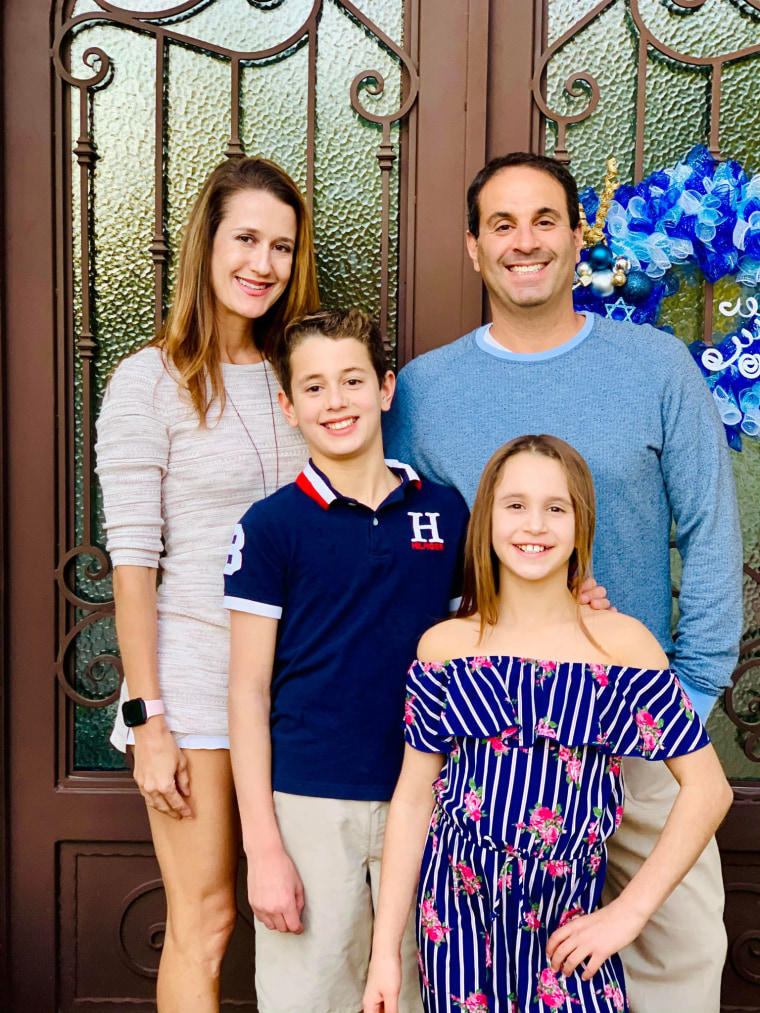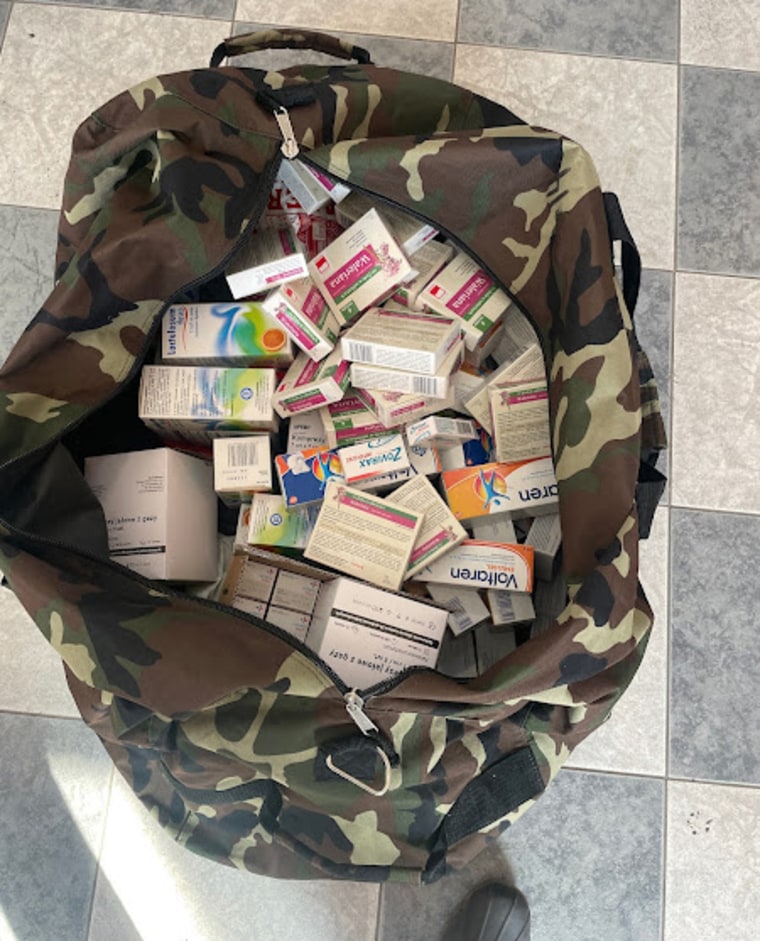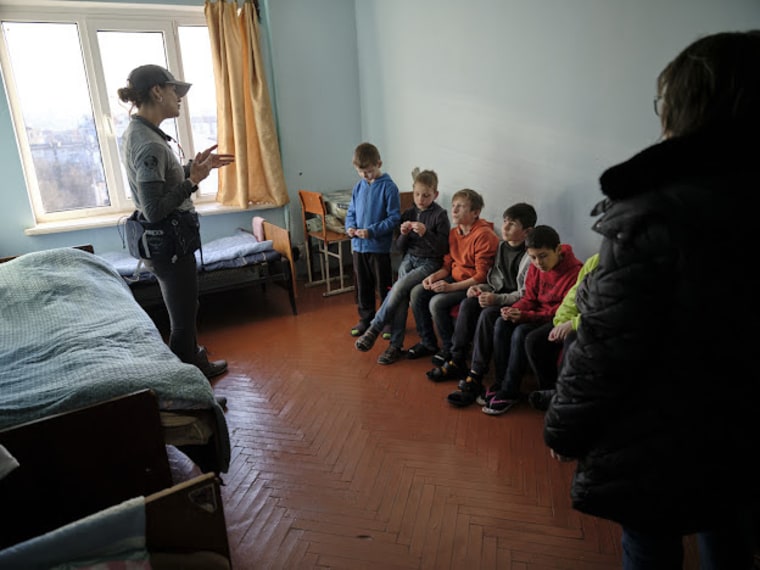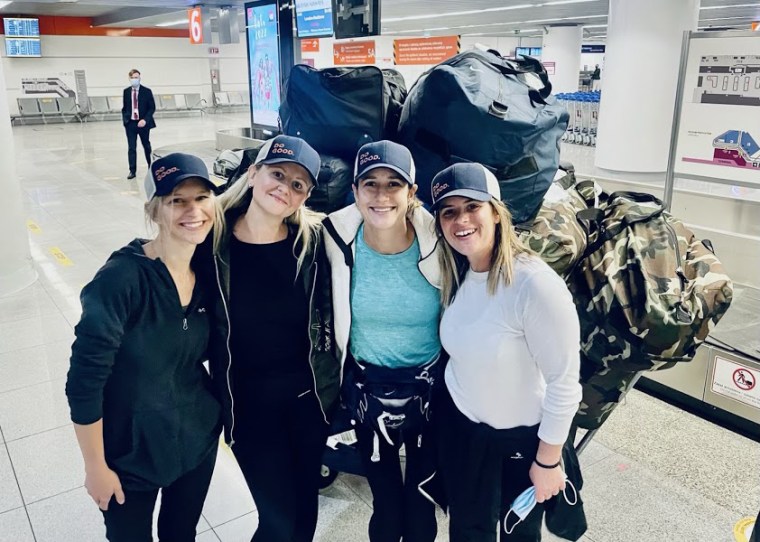Janet Semenova-Hornstein remembers the moment in early March when, watching the images of war in Ukraine, she knew she had to do something.
“My heart was breaking, seeing all those women and children,” she said.
A pediatric nurse practitioner in Scottsdale, Arizona, Semenova-Hornstein was born in the former Soviet Union, in Uzbekistan, and immigrated to the United States with her parents when she was 7. Like her friend, Dr. Svetlana Reznikova-Steinway, who was born and raised in Ukraine and is now an emergency room physician in Mesa, she felt a connection to the region because of her family roots.

“Svetlana and I looked at each other and said, ‘What can we do?’” she said. “We both speak Russian. She speaks Ukrainian. We have medical skills. We were two moms living in Arizona, but we knew we had to take our skills and physically do something.”
Enlisting the help of two more friends with medical backgrounds — Dr. Cheryl Macy, an emergency room physician in Phoenix, and Carla Stark, an oncology nurse in the Scottsdale area — they began assembling donations of medical supplies. Within 72 hours, they collected 800 pounds of bandages, antibiotics and urgently needed medicines, including insulin, as well as $50,000 in monetary contributions.
At first, the friends thought they’d simply send the materials to Ukraine. But Aerial Recovery Group, a relief organization they’d been in touch with, asked if they could do something more.
“They told us they were nurses and doctors and had ties to the region,” said Jeremy Locke, chief of operations for the U.S.-based disaster relief organization that’s been working in Ukraine. “Because we had a need for their expertise, we asked them to come over here.”
In Ukraine, Locke, a retired Green Beret, and his team have been shuttling medical supplies to the front lines and escorting orphans from the hardest-hit regions to safer areas, like the western city of Lviv. Aerial Recovery Group offered to pay for the Arizona women’s flight to Poland and provide safe houses where they could stay as they provided medical assistance in the region.
And so on March 7, the four women, who as mothers of young children said they were also motivated by seeing the struggle mothers in Ukraine faced as refugees, hurriedly rearranged work schedules, set up child care and boarded a flight to Poland. They were assisted in their efforts by British Airways, which agreed to waive baggage fees for the hundreds of pounds of medical supplies they brought with them.

“Our families were so supportive,” said Stark, who has two sons ages 10 and 11. “My husband was nervous, knowing his wife was going to another country, near a war zone. But he and my boys knew I was going there to help.”
For two weeks, the four women put their medical skills to work in Lviv and across the Ukrainian border in Medyka, a Polish town where thousands of refugees enter each day.
At the refugee center clinic in Medyka, they helped relieve weary Polish doctors and nurses, providing both medical and translation help.
“We treated refugees’ wounds. We provided pain medication,” Macy said. “A lot of people had a lot of anxiety. We provided an ear to listen, a shoulder to cry on, as these people had experienced horrible things.”
The women also worked with the staff at the refugee clinic and with doctors at hospitals in Lviv to identify urgently needed medications, then got what was needed from local pharmacies. They also assembled hundreds of first aid kits to send to Ukrainian soldiers on the front lines.
In Lviv, Semenova-Hornstein’s primary task was assessing and treating Ukrainian orphans Aerial Recovery had transported from hard-hit areas of Ukraine, near the front lines.
“Many of the children had been living in cold bomb shelters for up to two weeks,” she said. “A lot of them had developed pneumonia, upper respiratory infections. Some had anxiety and PTSD from all of the shelling,” she said, referring to post-traumatic stress disorder.

Semenova-Hornstein said her time with the orphans was powerful, punctuated by frequent air raid sirens.
After two years of treating seriously ill Covid patients in Arizona hospitals, Macy and Reznikova-Steinway call their trip to the region “strangely healing.”
“With Covid, most of us felt helpless,” Reznikova-Steinway said. “It was so tough to see people die in our arms, and with the illness being politicized, it got to be too much.”
Macy said she’d seen a lot of Covid-related burnout among doctors and “a lack of hope for humanity in a lot of ways, because of how people were treating each other.”
“Going to the Polish-Ukrainian border was rejuvenating. People were working together,” she said. “It restored my abilities to practice medicine in a lot of ways.”
Now back in the U.S., all four women are hard at work collecting more medical supply donations for a second Ukrainian mission.
“We’re now in direct contact with Ukrainian hospitals and are working to get them exactly what they need,” Reznikova-Steinway said, noting that among the most urgently needed items for Ukraine’s front lines are IV antibiotics for broad spectrum coverage, tranexamic acid to stop bleeding, and EZ-IO drills and needles.
Nearly a month after their mission began, Stark still marvels at what she and her Arizona friends, busy juggling careers and children, were able to do.
“Unofficially, we’re calling ourselves ‘Team Do Good,’” she said. “We’re four moms with medical backgrounds who said, ‘Let’s go do this.’ And this is what happened.”
